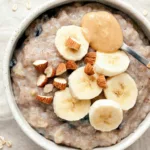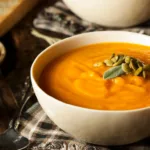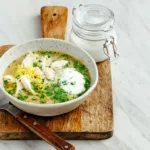Are Green Vegetables Good for GERD? Everything You Need to Know
So, you’re wondering if green vegetables are okay for GERD (Gastroesophageal Reflux Disease)? Let’s dive into it and figure out whether they should be a part of your diet or not!
If you’ve been dealing with GERD, you know it can be a real pain (literally!). GERD happens when stomach acid flows back into your esophagus, causing discomfort, heartburn, and other issues. When you’re trying to manage GERD, figuring out what foods are safe to eat is a top priority. But here’s the thing—green vegetables might just be your new best friend!
In this article, we’re going to explore how green veggies play a role in managing GERD and whether they’re a good option for your diet.
What is GERD and How Does It Affect Digestion?
Before we jump into the veggies, let’s quickly go over GERD. When you have GERD, the muscles at the bottom of your esophagus don’t work like they should. This can cause stomach acid to leak back up into your esophagus, which leads to irritation, heartburn, and even more serious issues over time. The last thing you want is to eat foods that trigger those symptoms.
Why Green Vegetables are Often Good for GERD
So, are green vegetables good for GERD? The short answer: yes, they can be! Most green veggies are low in fat and acidity, which is great because those are the two big factors that trigger GERD symptoms. Many of the common green veggies, like spinach, kale, and broccoli, don’t cause the same acid reflux issues that more acidic or fatty foods do.
But let’s take a closer look at why green vegetables are a solid option:
- Low in Acid: Green veggies are naturally low in acid, which helps avoid triggering the acid reflux that causes heartburn and discomfort. If you’ve ever had an issue with citrus fruits, tomatoes, or spicy foods, you’ll be happy to know that leafy greens don’t contribute to that burning sensation.
- High in Fiber: Fiber is a big win when it comes to GERD. A high-fiber diet can help prevent acid reflux episodes by keeping everything moving smoothly through your digestive tract. Green vegetables like spinach, kale, and Swiss chard are packed with fiber, making them great choices for improving digestion and reducing the chances of acid backup in the stomach.
- Rich in Nutrients: Green vegetables are full of essential vitamins and minerals, like vitamin K, vitamin A, calcium, and folate. These nutrients can support overall digestive health and may even help repair the lining of your esophagus if it’s been irritated by acid reflux.
- Anti-inflammatory Properties: Chronic acid reflux can lead to inflammation of the esophagus, which makes the symptoms worse. Many green vegetables have natural anti-inflammatory properties, meaning they can help soothe your digestive system. For instance, broccoli and kale are rich in antioxidants that support your body’s ability to fight inflammation.
Which Green Vegetables Are Best for GERD?
Not all veggies are created equal when it comes to GERD management. Some are particularly gentle on your stomach and can be eaten without worry. Here are a few that are especially good for GERD:
- Spinach: Spinach is super easy to digest and packed with nutrients. It’s low in acid and won’t irritate your esophagus. Whether you eat it cooked or raw, spinach is a go-to veggie for GERD-friendly meals.
- Kale: Kale is another green powerhouse, loaded with fiber and antioxidants. It can be a little tougher if you’re not used to eating it, but if you cook it down or massage it into a salad, it becomes more tender and easier on your stomach.
- Broccoli: Broccoli is a GERD-friendly choice due to its high fiber content and anti-inflammatory properties. It’s one of the best veggies to reduce overall inflammation and soothe your digestive system.
- Zucchini: Zucchini is a mild, low-acid vegetable that’s gentle on your stomach. It’s also hydrating and can be cooked or eaten raw, making it versatile for a variety of GERD-friendly meals.
- Green Beans: Green beans are another low-acid vegetable that’s unlikely to cause reflux issues. Plus, they’re rich in fiber, which can help with digestion and prevent acid buildup in the stomach.
Which Green Vegetables Should You Avoid for GERD?
While most green vegetables are safe for GERD, there are a few that might cause problems for some people. If you have a sensitivity to them, it’s best to avoid:
- Onions: While technically not a green vegetable, onions often get mixed into green veggie dishes and can trigger GERD symptoms for many people. If you love onions, try using them sparingly or cooking them to reduce their potency.
- Garlic: Like onions, garlic can be an irritant for GERD sufferers. It’s delicious, but if you notice it triggers reflux, it might be worth cutting back or avoiding it altogether.
Tips for Adding Green Vegetables to Your GERD-Friendly Diet
Eating green vegetables for GERD doesn’t mean you have to eat bland food. Here are a few tips to make sure you’re getting the most out of your veggies:
- Cook Your Veggies: Cooking veggies can make them easier to digest and less likely to trigger GERD symptoms. Steaming, roasting, or sautéing with a small amount of olive oil can give them great flavor without making them too hard on your digestive system.
- Pair with GERD-Friendly Proteins: Pair your green veggies with lean proteins, like grilled chicken, fish, or tofu. These foods are less likely to trigger reflux and will keep your meals balanced.
- Experiment with Herbs: Fresh herbs like basil, parsley, and thyme can add flavor to your dishes without causing irritation. Use these instead of spicy seasonings or acidic condiments.
Conclusion: Embrace Green Vegetables for GERD!
When it comes to managing GERD, green vegetables are generally a safe and healthy choice. Their low acidity, high fiber content, and anti-inflammatory properties make them an excellent addition to your diet. So go ahead, load up your plate with spinach, kale, and broccoli—they’re doing your digestive system a favor!
Appendices
FAQs
- Are all green vegetables good for GERD? Most green vegetables are good for GERD because they’re low in acid and high in fiber. However, some like onions or garlic may trigger symptoms for certain individuals.
- Can I eat raw green vegetables if I have GERD? Raw green vegetables are generally safe, but if you have trouble with digestion, cooked veggies might be gentler on your stomach.
- Is broccoli really safe for GERD? Yes, broccoli is low in acid and high in fiber, making it a great choice for GERD. However, if it’s not cooked well, it might be harder to digest, so cook it thoroughly.
- What vegetables should I avoid with GERD? Vegetables like onions, garlic, and tomatoes can trigger GERD symptoms for some people. Stick to mild, non-acidic greens instead.
- Can I eat green beans with GERD? Yes! Green beans are a low-acid vegetable and a great choice for GERD sufferers. They’re full of fiber and easy on the stomach.
References
- Mayo Clinic. (2023). Diet and GERD: Foods to Eat and Foods to Avoid. Read More
- National Institute of Diabetes and Digestive and Kidney Diseases (NIDDK). (2024). GERD: Treatment and Diet Tips. Read More
Disclaimer
This article is for informational purposes only and does not replace professional medical advice. Always consult with a healthcare provider for personalized advice on managing GERD or any other health condition.

Camellia Wulansari is a dedicated health writer specializing in digestive disorders, contributing valuable insights and information to the health and wellness community. With a passion for promoting well-being through knowledge, Camellia serves as a reliable source of expert content on healthusias.com.














